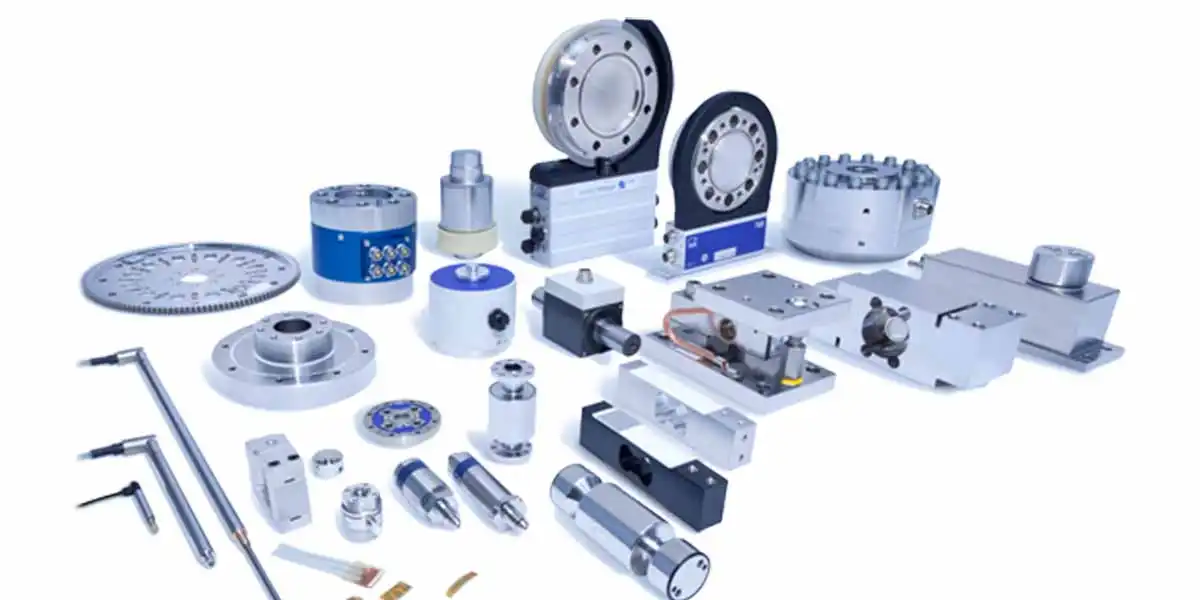
Jul 25, 2024
Blog Digital World The Sensor Market: A Thriving Industry in the Age of Connectivity
In today's rapidly evolving technological landscape, sensors have become an integral part of our daily lives. From smartphones to smart homes, industrial automation to healthcare, sensors play a crucial role in enabling a wide range of applications. The sensor market has witnessed significant growth in recent years, driven by advancements in technology, increasing demand for automation, and the proliferation of the Internet of Things (IoT). This blog explores the current state of the sensor market, key trends, challenges, and future prospects.
The global sensor market is experiencing robust growth, with an increasing number of industries recognizing the importance of sensors in enhancing efficiency, safety, and user experience. According to a report by BCC Research, The global market for sensors is estimated to increase from $179.7 billion in 2023 to reach $300.5 billion by 2029, at a compound annual growth rate (CAGR) of 8.9% from 2024 through 2029.
The IoT revolution has significantly impacted the sensor market. IoT devices rely heavily on sensors to collect and transmit data, enabling seamless connectivity and smart functionalities. The increasing deployment of IoT solutions across industries is driving the demand for advanced sensors capable of providing accurate and real-time data.
Continuous advancements in sensor technology are enabling the development of smaller, more efficient, and cost-effective sensors. Innovations such as MEMS (Micro-Electro-Mechanical Systems) sensors, optical sensors, and biosensors are expanding the possibilities of sensor applications in various fields, from healthcare monitoring to environmental sensing.
The push towards automation and the adoption of Industry 4.0 principles are driving the demand for sensors in manufacturing and industrial processes. Sensors play a critical role in monitoring and controlling various parameters, ensuring precision, reducing downtime, and enhancing overall productivity.
The healthcare sector is witnessing a surge in the adoption of sensors for patient monitoring, diagnostics, and treatment. Wearable devices equipped with sensors are becoming increasingly popular, enabling continuous health monitoring and early detection of medical conditions. This trend is expected to drive significant growth in the sensor market.
With growing concerns about environmental sustainability and climate change, the demand for sensors in environmental monitoring is on the rise. Sensors are used to monitor air and water quality, detect pollutants, and provide valuable data for making informed decisions to protect the environment.
The global market for sensors is estimated to increase from $179.7 billion in 2023 to reach $300.5 billion by 2029, at a compound annual growth rate (CAGR) of 8.9% from 2024 through 2029.
Despite the promising growth prospects, the sensor market faces several challenges:
The proliferation of connected devices and the extensive data collected by sensors raise concerns about data security and privacy. Ensuring robust security measures to protect sensitive information is a critical challenge for sensor manufacturers and users.
The lack of standardization and interoperability among different sensor systems and protocols can hinder seamless integration and data exchange. Establishing industry standards and promoting interoperability are essential to overcome this challenge.
While advancements in technology have led to cost reductions, high-performance sensors can still be expensive. Additionally, power consumption remains a concern, particularly for battery-operated and remote sensing applications. Developing energy-efficient sensors without compromising performance is a key challenge for the industry.
The future of the sensor market looks promising, with several exciting developments on the horizon:
The integration of artificial intelligence (AI) and machine learning (ML) with sensor technology is expected to revolutionize the sensor market. AI-powered sensors can analyze data in real-time, enabling predictive maintenance, anomaly detection, and smarter decision-making across various applications.
The rollout of 5G networks will provide the necessary infrastructure for faster and more reliable data transmission, further boosting the adoption of sensors in IoT applications. The increased bandwidth and low latency of 5G will enable new use cases and enhance existing ones.
Edge computing, which involves processing data closer to the source rather than relying on centralized cloud servers, is gaining traction. Sensors equipped with edge computing capabilities can process and analyze data locally, reducing latency and improving efficiency in real-time applications.
The development of smart cities and intelligent infrastructure will drive the demand for sensors in urban planning, transportation, and public safety. Sensors will play a vital role in creating sustainable and efficient urban environments.
The sensor market is poised for significant growth in the coming years, driven by technological advancements, increasing demand for automation, and the proliferation of IoT devices. While challenges such as data security and interoperability need to be addressed, the integration of AI, 5G, and edge computing presents exciting opportunities for the industry. As sensors continue to evolve and find new applications, they will undoubtedly play a crucial role in shaping the future of technology and improving our everyday lives.

I am Adarsh Rawat and I have a degree in BBA from Jamia Milia Islamia, I have honed a diverse skill set that spans digital marketing, traditional advertising, brand management, and market research. My journey in marketing has been characterized by a commitment to innovation and an ability to adapt to emerging trends.

From smartphones to satellites, antennas play a vital role in enabling the seaml...

Introduction Artificial Intelligence (AI) and the Internet of Things (IoT) are r...

We are your trusted research partner, providing actionable insights and custom consulting across life sciences, advanced materials, and technology. Allow BCC Research to nurture your smartest business decisions today, tomorrow, and beyond.
Contact UsBCC Research provides objective, unbiased measurement and assessment of market opportunities with detailed market research reports. Our experienced industry analysts assess growth opportunities, market sizing, technologies, applications, supply chains and companies with the singular goal of helping you make informed business decisions, free of noise and hype.